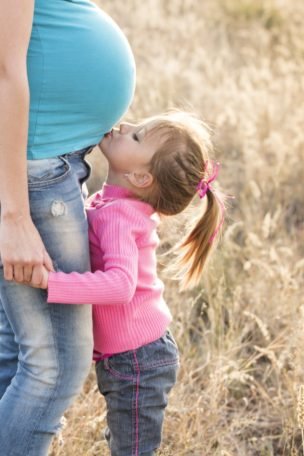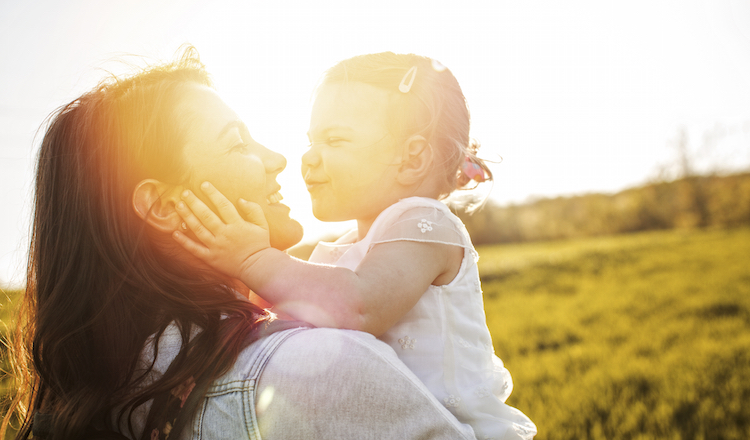As fertility rates decline across the globe, the journey to parenthood is becoming more complex and deeply personal. From delayed family planning to shifting social expectations, navigating parenthood today requires new perspectives and support systems. Report by Arabella Gibson, CEO at Gidget Foundation Australia
Navigating parenthood in a declining fertility rate landscape
The Australian Bureau of Statistics (ABS) has released statistics for births and fertility rates in 2024, and the numbers are painting a story of modern Australian families. The numbers don’t just reflect statistics of the Australian demographic, they show a shift in the parenting experience, highlighting mental health risks for new and expectant parents.
There has been much commentary around the varying fertility rate, which fell to a record low of 1.482 births per woman in 2024. Women aged 15-29 years saw a decline in the fertility rate. Conversely, those women aged 30 to 34 years had the highest fertility rate, at 106 babies per 1,000 women, which was up from 105.2 the previous year.
We are observing a significant change for modern Australian women, who are choosing to prioritise differently whether that be studying longer, building their careers or taking their time to plan for a family. Additionally, parents in Australia are having fewer children, leading to smaller average family size.
These changes in Australia’s family units may also be leading to an unintended consequence – a rise in perinatal mental health challenges among parents.

Modern parenthood is changing
For many modern working women today, parenthood comes after years of achieving personal and professional goals. They’ve worked hard to establish careers, travel, and create financial stability. When they finally decide to have a baby, the adjustment can feel overwhelming.
Working women are often competent and high performing with a key idea of what their skills and strengths are. Suddenly, they’re thrown into a new challenge that is often unpredictable, sleep-deprived and emotionally raw. The shift from the independence that they have lived by for years, to chaos with no knowledge of what hurdles are coming next, can be disorienting.
Australians are also having smaller families, as seen by the low fertility rate. However, being in a smaller family can intensify pressures as families look to create the perfect nurturing environment for their children to grow up within. This leads to pressure to present a certain way, attend children’s activities and give their child as much opportunity as possible which can be unsustainable.

The lifestyle shift as a parent
The previous generation of parents have talked about this before: how parenthood used to be something that happened early and often, surrounded by an extended family, community and multiple kids. For today’s family, it’s more common to be made up of one or two children, and parents are managing without a ‘traditional’ village. This change in lifestyle has its effect on the parenthood experience.
When parenthood comes later, there’s often a deeper awareness of the compromises made to build a family: namely, independence and freedom.
The reality is: even the most content new parents can struggle with the identity shift. And since many are having children later in life, they may also be carrying additional responsibilities such as caring for ageing parents – all adding yet another layer to the emotional load. We know that additional life stressors in the perinatal period can lead to increased vulnerability to perinatal depression and anxiety (PNDA). Mental health conditions can be experienced by parents who do not recognise some of the symptoms for the first time or for those who have experienced mental health challenges this period can exacerbate symptoms.

Seeking support for the struggles of modern parenthood
PNDA is prevalent in new or expecting parents, affecting one in five mothers and one in ten fathers. It may be hard to differentiate the signs of perinatal anxiety and depression from the usual emotions of being a parent. Symptoms of PNDA include being withdrawn from your family and friends, repetitive negative thought patterns that include harsh self-criticism and, in some cases, recurrent intrusive thoughts that are distressing for the expectant or new parent.
If at any point of your parenthood journey you feel like you are struggling, seeking early intervention before things get worse is the best course of action. There are perinatal mental health support services available. Gidget Foundation Australia offers psychological services for both mums and dads either in-person at our Gidget Houses across the country, or online telehealth services.
Australia’s record-low fertility rates and the older median age of parents mean that Australian families are reshaping, but support systems are available to cater to this change. With services like Gidget Foundation Australia that provide professional help in a judgement-free space, modern-day parents can thrive.

Arabella Gibson, CEO at Gidget Foundation Australia
Gidget Foundation Australia is a not-for-profit organisation that supports the mental health of expectant, new and potential parents to ensure they receive accessible, timely and specialist care. It offers year-long, free, specialist perinatal mental health psychological services online and in-person, and invests in retention, engagement, and development of its clinicians through.

Citations: https://www.abs.gov.au/statistics/people/population/births-australia/latest-release